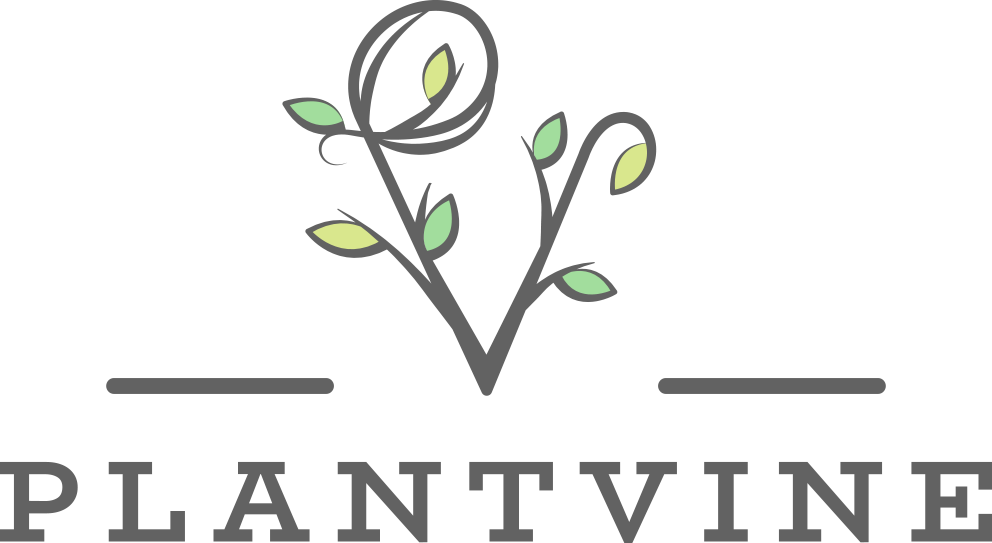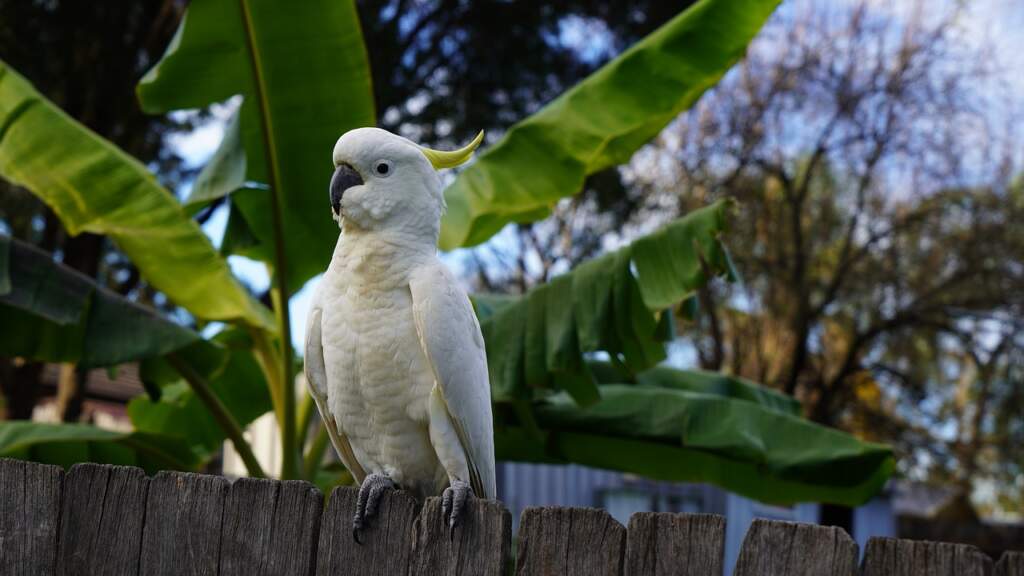
Birds are naturally inquisitive creatures with a playful spirit and an instinct to explore their surroundings, often leading them to nibble on whatever catches their fancy, including houseplants. As a bird owner, one of your primary responsibilities is to create a safe and stimulating environment. Unfortunately, many popular houseplants can be harmful, even deadly, to our avian friends when ingested. That’s why it’s essential to curate a selection of non-toxic houseplants that offer aesthetic appeal while ensuring your pet’s safety.
The Magic of Greenery
Houseplants not only provide a visual feast for the eyes but also have numerous health benefits. They improve air quality, increase humidity, reduce stress, and add life to our homes. While adding houseplants is an excellent way to enhance your bird’s habitat and stimulate their curiosity, we need to ensure that these plants pose no threat to their health.
Bird-Friendly Houseplants
While there are many plants that you should avoid, there’s also a diverse selection of beautiful, bird-safe options. Let’s explore some of these:
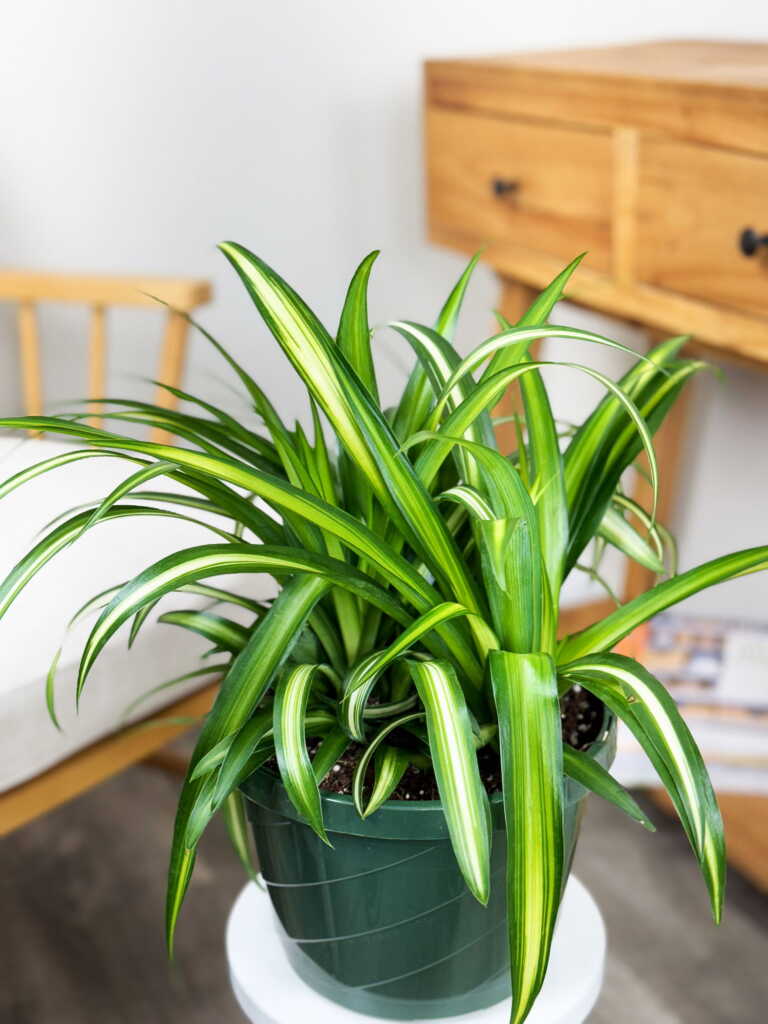
Hawaiian Spider Plant
1. Spider Plants (Chlorophytum comosum)
Spider plants are hardy, easy-to-grow houseplants that are perfectly safe for birds. They sport arching green leaves with cream or white stripes that grow fast and produce “pups” or baby plants. Spider plants are excellent air purifiers and can withstand different light conditions, making them ideal for both new plant owners and busy people.
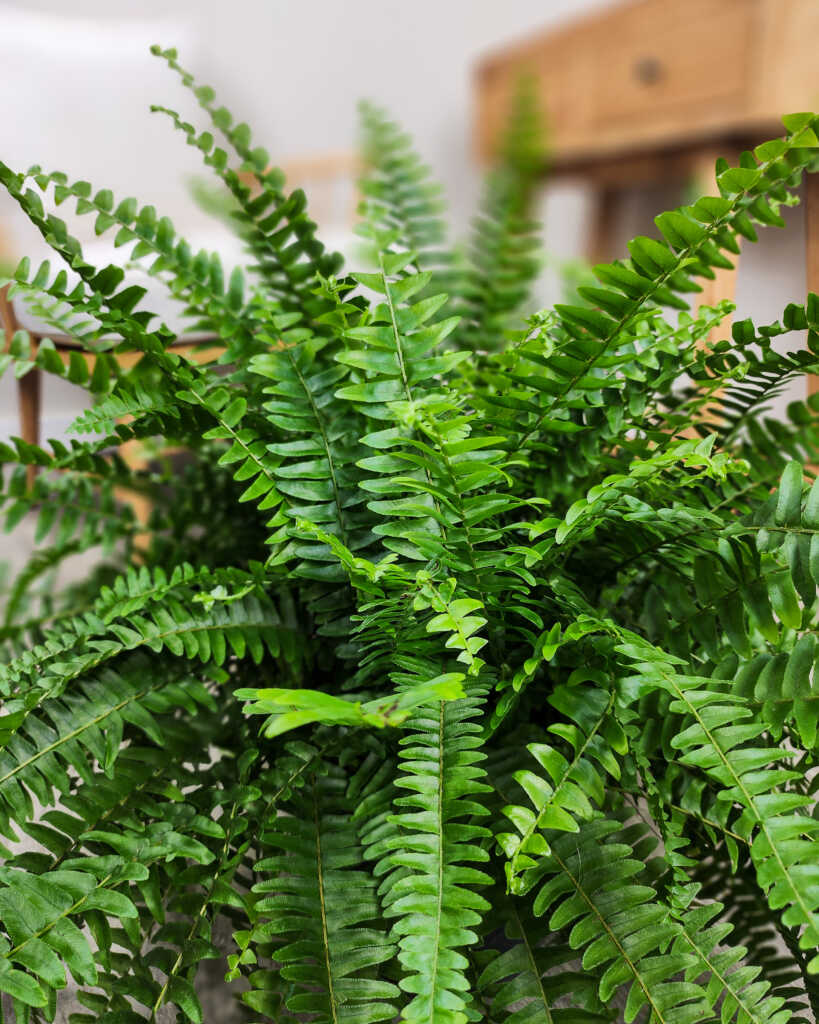
Boston Fern
2. Boston Ferns (Nephrolepis exaltata)
Known for their lush, feathery fronds, Boston ferns are non-toxic to birds and can thrive indoors with proper care. They require high humidity and indirect light, making them a perfect fit for a bird’s naturally tropical habitat. Birds love to play among their soft, dangling fronds.
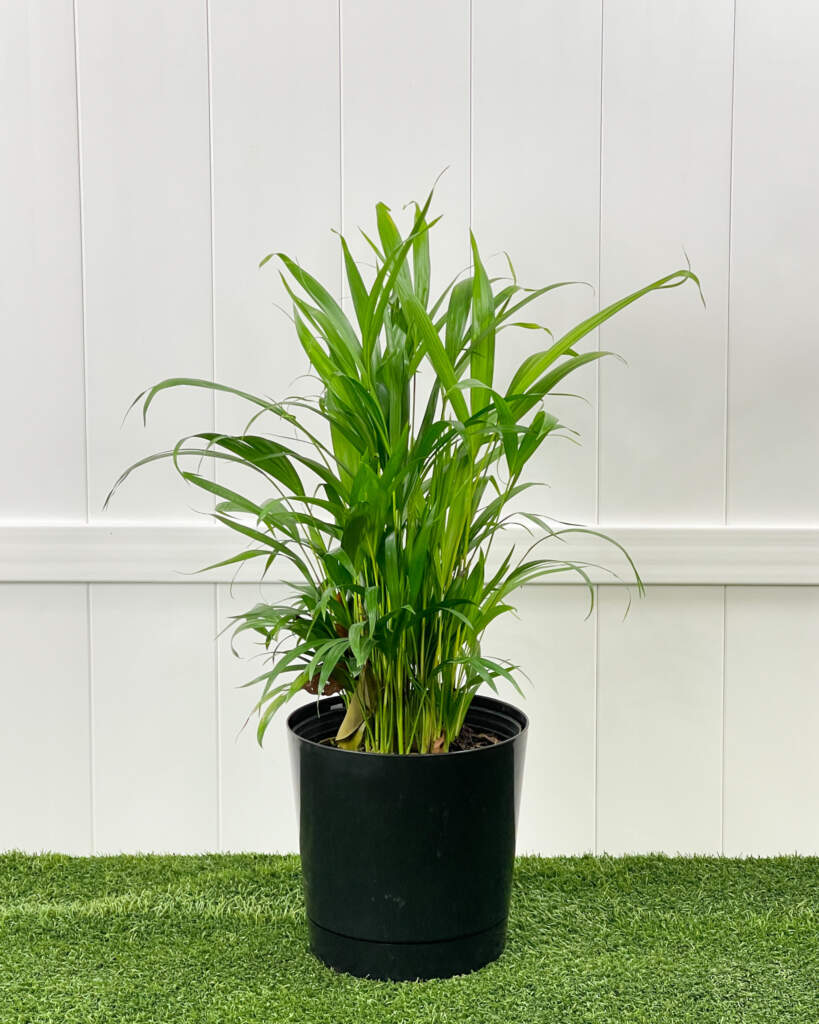
Areca Palm
3. Areca Palm (Dypsis lutescens)
The Areca palm, also known as the butterfly or golden cane palm, is a popular choice for indoor spaces due to its air purifying abilities and lush, tropical look. This plant is not only non-toxic to birds but also helps in removing harmful toxins from the air.
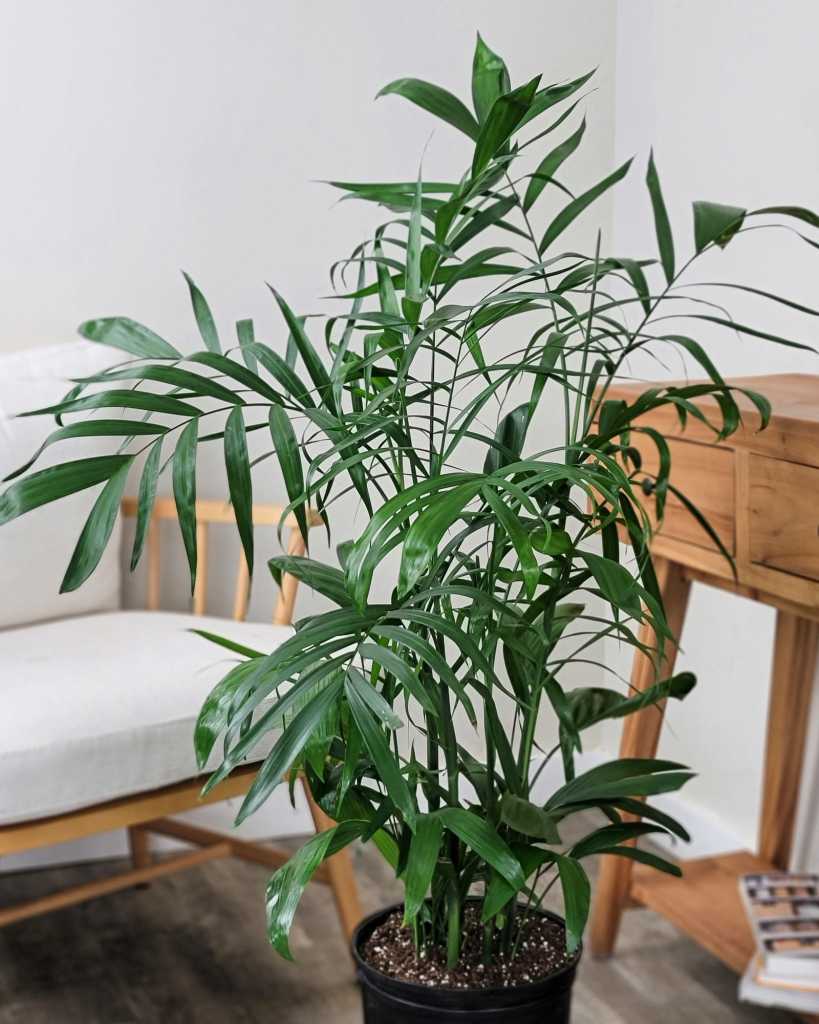
Bamboo Palm
4. Bamboo Palm (Chamaedorea seifrizii)
Another safe plant for birds, the bamboo palm, adds a touch of tropical beauty to your home. Known for its air-purifying abilities, it grows in low light and has a good resistance to pests.
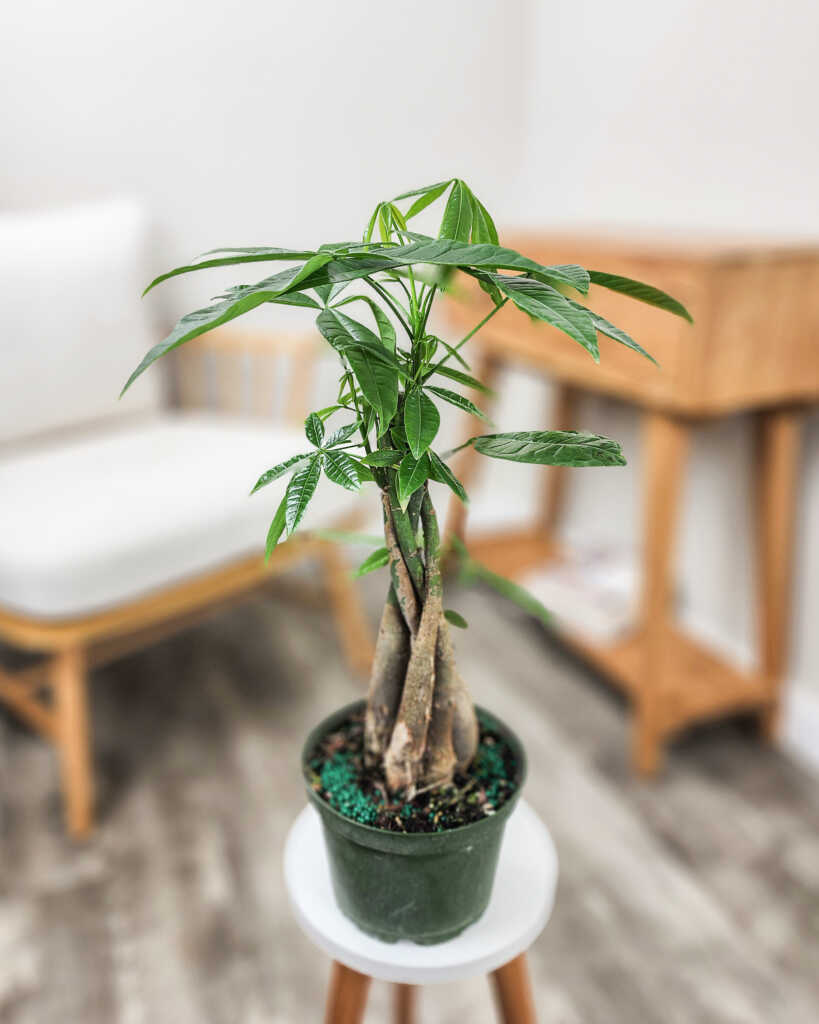
Braided Money Tree
5. Money Tree (Pachira aquatica)
Money Trees, or Pachira aquatica, are attractive and bird-friendly houseplants. Neither the leaves nor the bark contain toxins harmful to birds, making them a safe choice for bird owners. However, always monitor interactions, as excessive chewing on any plant could potentially cause digestive issues.
Other Safe Choices
Other bird-safe houseplants include the Venus Fly Trap, African Violet, and Christmas Cactus. Always verify that the plant is safe for your particular bird species before bringing it home.
Precautions and Tips
When introducing new plants into your home, there are a few points to remember:
- Purchase Organically: Ensure the plant has not been treated with pesticides, which could be harmful to your bird. It’s best to purchase plants from organic nurseries or stores you trust.
- Quarantine New Plants: New plants can bring pests or diseases into your home that might harm your bird. It’s advisable to quarantine them for a couple of weeks before placing them near your bird’s habitat.
- Placement: Place plants where your bird can’t reach them if you’re unsure of their toxicity or when you’re not around to supervise.
- Train Your Bird: Train your birds not to chew on anything without your permission. This training could be a life-saver, particularly when you’re in an environment you can’t entirely control.
- Emergency Care: Have a plan in place for emergency veterinary care. If your bird does ingest something toxic, quick action will be necessary.
Conclusion
Living with birds doesn’t mean you need to forego the pleasures of indoor greenery. By choosing bird-safe plants and taking necessary precautions, you can create a vibrant, healthy space that you and your avian companion will love. Remember, a healthy environment contributes to a healthy bird, and a healthy bird is a happy bird.
